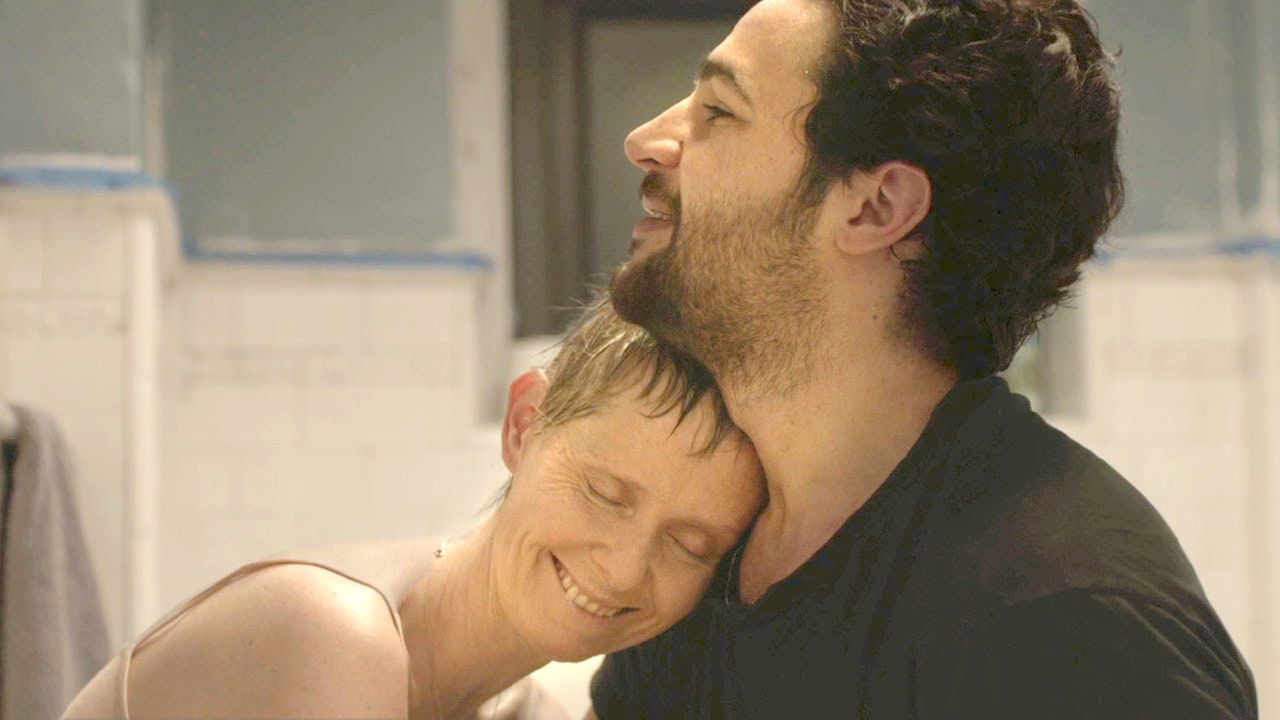The film opens powerfully with a scene that introduces us to the titular character and constantly wrong-foots our understanding of what we’re seeing.
He’s out of sync with the city
James White (Abbott) stands in a nightclub – a thumping bass reverberates over the soundtrack. Someone is talking to him, to whom he nods but apparently he isn’t listening.
The sound then switches to a subjective perspective. He’s listening to classical music via a pair of headphones. It’s a scene that shows us, rather elegantly, that White exists detached from his immediate environment – alone in a crowd. After downing more shots, he exits the club, surprisingly into sunlight rather than street lights – a disorientating transition that further confirms his status as an outsider entirely out of sync with the world around him.
… and out of mind with grief
James is a 20-something New Yorker whose response to the death of his father is muted by his mother’s terminal cancer. His self-destructive behaviour threatens to consume him, but at the same time appears to be his only refuge from these momentous family challenges.
The film is a part-autobiographical account of writer/director Josh Mond’s own struggles in dealing with the gradual loss of his mother. This authenticity shows on screen; the narrative is sparse and difficult to summarise in any conventional sense, but the emphasis is less on story and more geared towards accurately communicating an emotionally complex state of being, which Mond fully achieves.
Her out of ‘Sex and the City’
Abbott’s melancholic, sweaty-eyed expressions resemble that of a dog having lost its bone – his features constantly fighting a losing battle with gravity. While it helps that we’ve never seen the actor in another role, he convincingly embodies this character so authentically that it’s difficult to imagine Christopher Abbott isn’t James White and vice-versa.
Cynthia Nixon as White’s mother is equally revelatory. Perhaps taking the role was a deliberate move to distance herself from the part for which she will always be remembered: Miranda in Sex and the City. Although there is some of Miranda’s vulnerability, similarly hidden behind an outward show of strength, the stakes are much higher and Nixon gives us something ultimately very different in Gail White. She walks a contradictory line of, on the one hand, desperately needing her son and therefore keeping him close, while on the other pushing him away so that he might have the space to define himself outside of their relationship.
James’ self-perception is shaped by the co-dependence he shares with his mother – like her, he is also provider, protector and carer. At the same time, perhaps cruelly, none of this counts towards his real-world sense of self-worth because it all plays out unseen, inside the walls of his family home.
All out of superlatives
Towards the end, we get an incredibly moving scene in which the pair speculate on a future that will almost certainly never come. It doesn’t resolve anything, but it does allow us to understand the depth of their bond, the extent to which they rely on one another and, consequently, James’ dilemma that will undoubtedly perpetuate itself until the day when one is no longer there for the other.
Mond has crafted a debut that is insightful, frequently touching and richly layered in its depiction of a mother and son in crisis.














